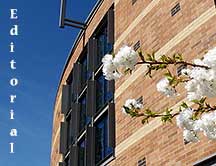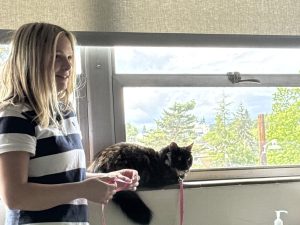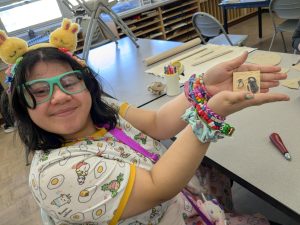Deleting Fake News from our Lives

January 5, 2017
If you aren’t sure what fake news is, we urge you to read Beatriz Cuevas’s article detailing the problem, “‘Fake News’ Streams into Our Internet”.
The emergence of fake news on the market today sets an alarming pressure on honest journalists to portray and circulate accurate news. The Miter prides itself in delivering honest news, but we also acknowledge that is not always the case from other sources.
Fake news can range anywhere from an advertisement hidden in the format of an article (made known to some through popular episodes of South Park), to misleading headlines and downright fake stories.
Fake news often mimics real news, combining the absurd with inaccurate facts just believable enough for the story to pass as “news”.
In Cuevas’s article, she wrote about teenagers’ reliance to the internet for their news. This rings especially true for students at Bishop Blanchet. Apps and websites like Snapchat, Instagram, Facebook, and Twitter have made news easily accessible to all in a matter of a few swipes. The problem with this, though, is that misinformation is equally as available as honest news.
With Twitter, especially, every person can become an author. The Miter Staff would like to impart on BBHS students that with great power comes great responsibility. Your words have meaning, and are far more invaluable than you can ever imagine.
Be careful what you share on Facebook or Twitter.
Especially after this past election cycle and living in the midst other controversial movements such as Black Lives Matter, biased fake news and plain fallacies are being spread- all under the façade of “news”.
We have the responsibility to share honest stories, not fake ones that perpetuate hatred or arguments.
In conclusion, The Miter Staff would like to punctuate the responsibility that you, as consumers, have.
Headlines and stories can be misleading. However, we live in a country with freedom of speech, and with ever-changing technology and the internet at all of our fingertips we have the responsibility to investigate the truthfulness of what we read and share.




